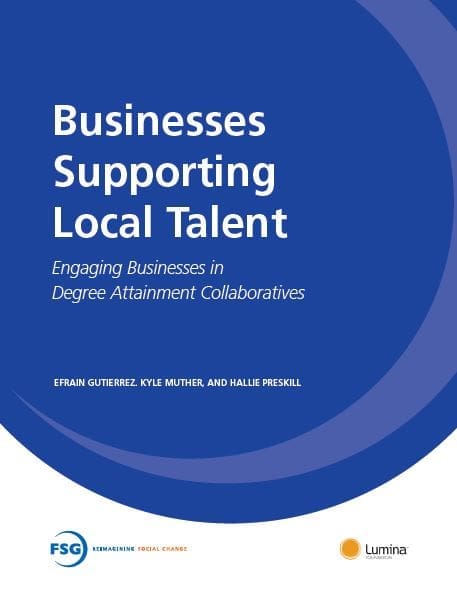More communities are coming together to focus their attention on increasing degree attainment—the number of people with quality post-secondary degrees and credentials. These cross-sector, collaborative efforts bring together nonprofits, higher education institutions, school districts, city governments, businesses, and local funders to work together in the development of the talent and skills their local economy needs.
Although these collaboratives agree that businesses are critical to the success of these efforts, many still struggle with how to engage local businesses effectively.
This brief and accompanying tool are designed to help these groups understand how businesses can support their effort and how to engage local businesses in these conversations.
See also the partnering report brief and tool on engaging local funders in degree attainment efforts.
Top Takeaways
- Despite high unemployment rates, businesses struggle to hire in an environment with a poor economy and a limited skilled workforce. Businesses have a vested interest in seeing the number of degrees and credentials rise.
- Often, businesses are seen as potential funders for collaborative efforts; however, they are well positioned to do much more than provide funding. They can leverage their business, their expertise, and their relationships to advocate for degree attainment in their community.
- For collaboratives seeking to engage with businesses, it’s important to understand the business’ motivations and to reframe the opportunity appropriately to help them understand where they fit and how participating in degree attainment collaborative work could benefit them.
Peter Beard, Greater Houston Partnership, UpSkill Houston

